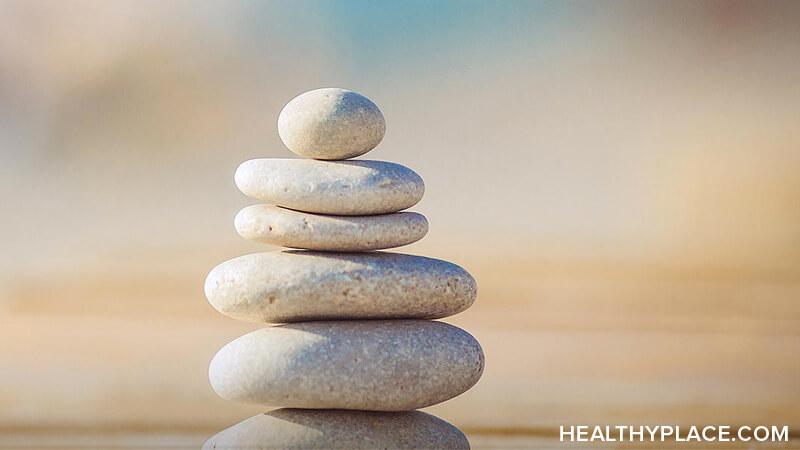Why I Hate Pop Psychology

I hate pop psychology a lot. And I hate pop psychology a lot for a very good reason: it harms those with mental illness (among others). Pop psychology aims to answer the mind's and the brain's questions with simplistic, easily digestible answers. Unfortunately, the brain and mind don't actually work like that. The body and the psyche require more than what pop psychology has to offer. So, yes, I hate pop psychology.
What Is Popular Psychology?
Start a gratitude journal.
Smiling will make you feel better.
Opposites attract.
Add your own pop psychology examples as you like.
Pop psychology does, of course, stand for popular psychology. According to the American Psychological Association, popular psychology is:
- psychological knowledge as understood by members of the general public, which may be oversimplified, misinterpreted, and out of date. See also commonsense psychology; folk psychology.
- psychological information intended specifically for use by the general public, such as self-help books and television and radio advice programs.1
Pop psychology tends to be delivered in sound bites by the media and self-help gurus. The information relayed in pop psychology nuggets may have a kernel of truth, but that truth is blown out of proportion by the nugget-spouter.
For example, being mindful is a good thing for many people, many times. In fact, mindfulness -- when taught and practiced in certain ways -- has been shown to be beneficial for many people.2 That said, if you're expecting to "be mindful" and have that cure your mental illness, you're going to be seriously disappointed (no matter what the guru says).
Why Do I Hate Pop Psychology?
My hatred of pop psychology comes down to two things:
- It often teaches people untrue, meaningless, or even harmful things.
- When these things don't fix a person's problems, they blame themselves. (And it doesn't help that a self-help guru might put blame on that person as well.)
So, as an example, take starting a gratitude journal.
I have no problem with people being grateful. I have no problem with people focussing on that for which they are grateful. And if you want to write those things down, that's your business. But don't pee on my leg and tell me it's training. Don't write down a few things for which you are grateful, and tell me your depression got better. Because if that's all it took, it wasn't major depressive disorder in the first place.
The problem is that people with real mental illnesses look to pop psychology because it's what people spread, it's what's on social media, and it's what they have access to, and then they blame themselves when it doesn't fix their problems.
Well, if your problem was that you didn't see positive things in your life, then yes, a gratitude journal might help you. If your problem is that your brain isn't working, then, no, it won't. And it isn't your fault that something that could never work does never work.
What I Really Hate About Pop Psychology
So, when I say I hate pop psychology, what I really mean is I hate the effect it has on real people with real illnesses.
If you have a real mental health concern, please see a mental health professional for real advice. It's okay to say that you need tips to make your relationship work. It's okay to say you need help feeling happier. It's okay to say you think you have a mental illness. All those things are okay, but the place to find help for mental health issues is through professionals, not social media influencers. Or, at the very least, take pop psychology ideas with a giant boulder of salt and know that promised outcomes may not occur, but that's not your fault; it's the fault of the information.
(As an aside, I know that not everyone has easy access to mental health professionals, even if online therapy makes it easier. I'm sorry about that. If you're one such person, I highly recommend you read reputable books by professionals. After all, a library card is free.)
Sources
-
APA Dictionary of Psychology. (n.d.). https://dictionary.apa.org/popular-psychology
-
Davis, D. M., & Hayes, J. A. (n.d.). What are the benefits of mindfulness. https://www.apa.org. https://www.apa.org/monitor/2012/07-08/ce-corner
APA Reference
Tracy, N.
(2023, September 29). Why I Hate Pop Psychology, HealthyPlace. Retrieved
on 2026, March 4 from https://www.healthyplace.com/blogs/breakingbipolar/2023/9/why-i-hate-pop-psychology
Author: Natasha Tracy
It feels that your hate for pop psychology is part of the complex set of emotions you love by day, and sometimes is being revealed on your posts. My inner guru tells me that you decided to go with the science and the ego makes you stuck on that regardless if anyone tells you that bipolar has roots in your childhood and that you need to re-program your emotional structure and learn to not waste your life force into hateful and un-loving emotions.
Thank you for your effort and courage to share your experiences!!
